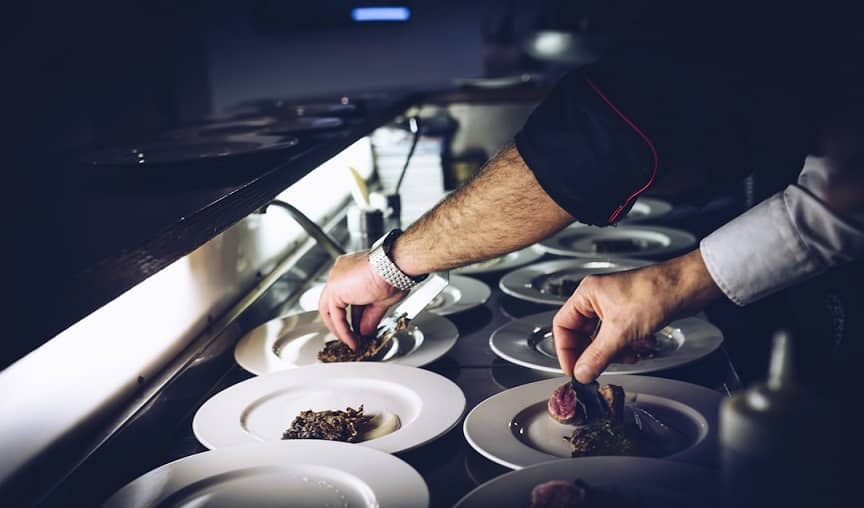The success of any restaurant hinges not only on the quality of its food and service but also on the reliability and performance of its equipment. Regular maintenance and stringent cleaning protocols are crucial to ensure that your kitchen runs smoothly, your staff work in a safe environment, and your customers enjoy their dining experience. Neglecting these aspects can lead to costly repairs, downtime, and even health code violations. Keep reading to uncover the best practices for maintaining, cleaning, and ensuring the longevity of your restaurant equipment.
Understanding the Importance of Regular Maintenance for Restaurant Equipment
Maintaining restaurant equipment meticulously is crucial for operational efficiency, preventing minor issues from becoming major inconveniences. Regular check-ups identify wear and tear, allowing for timely repairs to extend appliance lifespans.
Besides preventing emergency breakdowns, maintenance preserves food quality. Well-maintained appliances like ovens ensure consistent cooking results, vital for customer satisfaction and the restaurant’s reputation.
Economic efficiency is another key benefit. Well-kept equipment runs more efficiently, reducing energy usage and overhead costs, benefiting both budgets and the environment.
Safety is paramount. Faulty equipment poses hazards in the kitchen. Keeping equipment in good repair reduces accidents and ensures compliance with health and safety regulations.
Cleaning and Sanitation Procedures for Commercial Kitchens
Maintaining cleanliness in a commercial kitchen is paramount for safety and efficiency. Daily cleaning routines are crucial to keep equipment in good condition, prevent cross-contamination, and adhere to food safety standards. Surfaces in contact with food must be sanitized regularly to prevent bacterial spread and ensure consumer safety.
Following manufacturer guidelines for equipment cleaning is vital for preserving warranties and longevity. Using appropriate cleaning agents and methods is essential to avoid damaging sensitive components.
Periodic deep cleaning, especially for areas like hoods and ventilation systems, is necessary to eliminate grease buildup and reduce the risk of kitchen fires. Professional attention may be required for these tasks.
Documentation of cleaning procedures and schedules is important for accountability and compliance during health inspections. A well-documented cleaning regime demonstrates a commitment to upholding industry standards and ensures a favorable evaluation of the establishment.
Establishing a Maintenance Schedule for Various Kitchen Appliances
Implementing a comprehensive schedule for appliance maintenance is essential to ensure the longevity and efficiency of your kitchen equipment. Each appliance, ranging from refrigerators to grills, requires specific attention at regular intervals. By adhering to these schedules, you can prevent unnecessary wear and potential breakdowns.
Maintenance logs serve as invaluable tools in managing this process. They track service history, flag upcoming maintenance tasks, and provide a historical record of each appliance’s care. This systematic approach aids in troubleshooting and identifying performance issues promptly.
Daily or weekly tasks, such as cleaning seals and checking for loose parts, form part of routine maintenance. These simple actions help keep equipment in optimal condition and allow early detection of any emerging issues.
For more complex equipment, partnering with professional service providers is advisable. Their expertise ensures thorough care, potentially extending warranty coverage and reducing future repair costs.
Special Considerations for High-Usage Equipment

Highly utilized equipment like stoves and refrigerators in commercial kitchens require heightened attention due to their constant use. Their failure can disrupt service significantly. To mitigate this, contingency plans should be in place, such as stocking spare parts and having access to emergency repair services.
Staff training on proper equipment usage is crucial to prevent breakdowns and maintain efficiency. Regular inspection and calibration, particularly of temperature controls, are vital to ensure food safety and customer satisfaction.
Training Staff on Equipment Care and Safety Practices
Training your staff thoroughly on kitchen equipment use and care is essential for maintenance. Educated employees are less likely to misuse appliances, reducing the risk of malfunctions and costly repairs.
Proper training also enhances workplace safety by empowering teams to prevent accidents and respond effectively if incidents occur. Continuous education programs maintain skills and safety protocols up to date.
Cross-training employees on different equipment types promotes flexibility and ensures a competent team despite shift changes or turnover.
Engaging staff in maintenance processes encourages improvement suggestions and fosters a culture of ownership and responsibility, benefiting both the team and the business.
Overall, regular maintenance and thorough cleaning are vital for the durability of restaurant equipment. By embracing these duties and adhering to consistent practices, your kitchen can function seamlessly, guaranteeing the safety of your staff and the contentment of your customers. Taking a proactive stance towards equipment care is an investment in the restaurant’s prosperity and standing within the industry.

